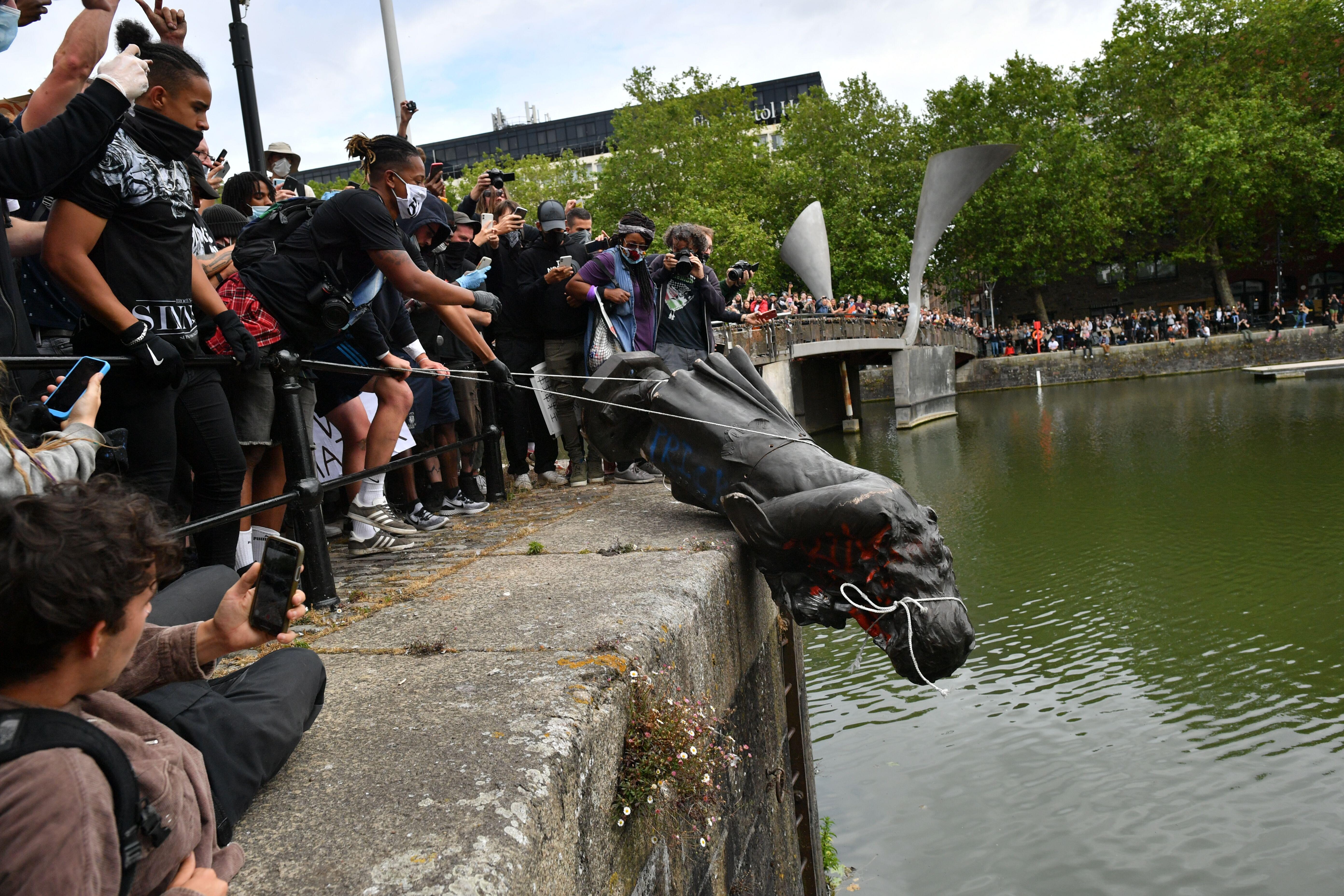Comment: It's over-reaching politicians we have to guard against, not jurors
When it comes to undermining the rule of law, it’s not jurors we have to guard against; it’s over-reaching politicians.
The trial of the Colston Four - the protesters who rolled the statue of slave trader Edward Colston into the Bristol docks - *has* been hijacked for political purposes; but not by the jurors.
It is now clear their decision to acquit was not - as former Justice Secretary Robert Buckland claimed - a “perverse verdict”; that is a refusal to convict in defiance of the evidence or the direction of the judge.

Perverse verdicts can be a matter of honour. Historically they have been delivered when jurors’ consciences run contrary to abhorrent laws. In the US, for example, northern juries sometimes acquitted those charged with helping slaves escape from the south.
But there is no reason to believe the six men and six women who considered the Colston case were influenced by anything other than the witness testimony and the judge, Peter Blair QC’s, instructions.
He set out the legally available defences put forward by the accused - for example, that they believed they were preventing the crime of public indecency - and told the jurors their task was to decide if the prosecution had dismantled them.
In the UK, jurors cannot be questioned, so we will never know where they stand on protest generally and the tearing down of statues specifically. Some may see it as a powerful political gesture; others as facile. All we know is that - by majority - they found one or more of the defences persuasive enough to prevent guilt from being established beyond all reasonable doubt.
We do, on the other hand, know precisely where many Conservative MPs stand on these issues. We know through the statements they make and the oppressive legislation their party is attempting to introduce.
We know because Tory MP for Harlow Robert Halfon branded the toppling of the Colston statue as “Stalinist”. We know because - during the Black Lives Matter protests - five Tory MPs came out to clean up the vandalised statue of Winston Churchill. We know because the Police, Crime, Sentencing and Courts Bill would make any protest which causes “serious annoyance” to other people illegal.
The UK government wants to stifle dissent. So the sight of the Colston protesters celebrating outside the court must have hit Tory politicians hard; hard enough for them to mount a disinformation campaign against the verdict.
First, we heard MP for Newark Robert Jenrick claim it “undermined the law that serves our democracy” and then Secretary of State for Transport Grant Shapps rail against “mob rule as the way forward”.
Shapps talked about closing a “loophole” that appears to exist only in his imagination. But even worse was the intervention of the Attorney General, Suella Braverman. She threatened to refer the verdict back to the Court of Appeal so senior judges could “clarify the law for future cases.” Although she failed to identify the point of law in need of clarification.
Braverman is meddling. And it’s not the first time. Last year, she tried, unsuccessfully, to persuade Appeal Court judges to increase the jail term given to the killers of PC Andrew Harper, citing “widespread concern,” as if sentencing should be ceded to lynch mobs.
The issue of political interference in the legal process is of interest in Scotland, too. Last year, in the wake of the parliamentary inquiry into the Scottish government’s handling of the initial allegations against Alex Salmond, there was some hand-wringing over the dual role of the Lord Advocate.
The insinuation - that the then Lord Advocate James Wolffe had bowed to SNP pressure in prosecuting the former First Minister - was never substantiated. But a wider concern - that there is a tension between the Lord Advocate’s responsibilities as principal legal adviser to the Scottish government and as the head of the Crown Office and Procurator Fiscal Service - persisted.
As we have seen, splitting the roles in England and Wales has not prevented such interference. It is true the Attorney General plays no part in deciding what charges will be brought (that is the remit of the Director of Public Prosecutions). But unlike the Lord Advocate, the Attorney General is a party political appointment.
Formerly chair of the pro-Leave European Research Group, Braverman once proclaimed Conservatives were engaged in a battle against “Cultural Marxism”. That’s a lot of baggage to bring to her current role.
Still, there is no room for complacency north of the border. Last week, the country’s most senior judge launched an attack on the Scottish government’s plans to reform the regulation of the legal profession.
In the judiciary’s response to the consultation, Lord Carloway said the proposals - which would transfer regulatory powers from the Court of Session and its Lord President to a body responsible to MSPs - “would create an unwarranted and unacceptable interference by the government and parliament with the judiciary”.
“An independent legal profession and judiciary is central to the operation of the rule of law,” Lord Carloway, who is the current Lord President, continued. “The protection of the public from the arbitrary abuse of power by the state depends upon it.”
While some change may be desirable, this response is concerning for those who care about democracy. As we have seen from the Colston affair, when it comes to undermining the rule of law, it’s not jurors we have to guard against; it’s over-reaching politicians.
Holyrood Newsletters
Holyrood provides comprehensive coverage of Scottish politics, offering award-winning reporting and analysis: Subscribe